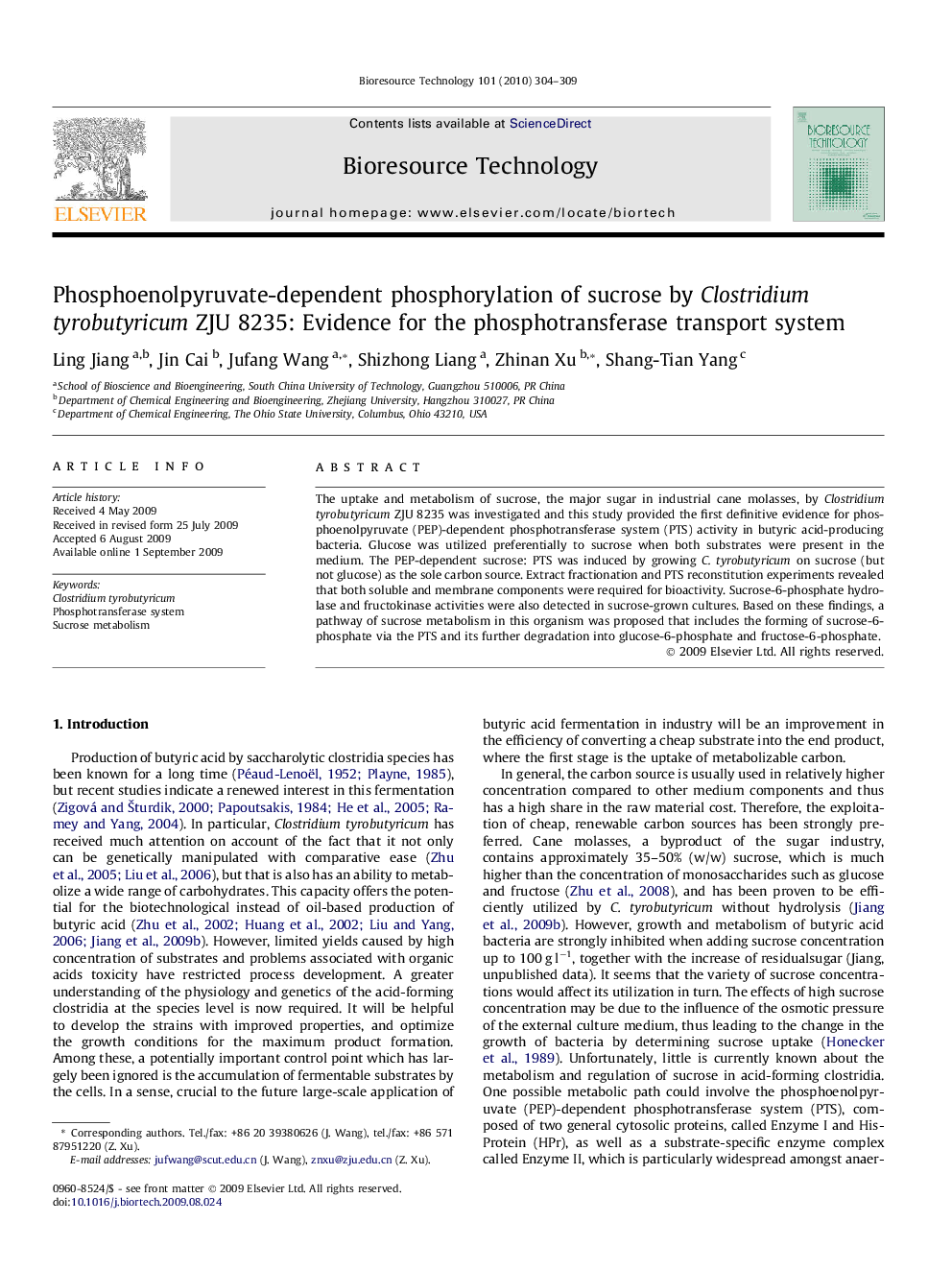| Article ID | Journal | Published Year | Pages | File Type |
|---|---|---|---|---|
| 683111 | Bioresource Technology | 2010 | 6 Pages |
Abstract
The uptake and metabolism of sucrose, the major sugar in industrial cane molasses, by Clostridium tyrobutyricum ZJU 8235 was investigated and this study provided the first definitive evidence for phosphoenolpyruvate (PEP)-dependent phosphotransferase system (PTS) activity in butyric acid-producing bacteria. Glucose was utilized preferentially to sucrose when both substrates were present in the medium. The PEP-dependent sucrose: PTS was induced by growing C. tyrobutyricum on sucrose (but not glucose) as the sole carbon source. Extract fractionation and PTS reconstitution experiments revealed that both soluble and membrane components were required for bioactivity. Sucrose-6-phosphate hydrolase and fructokinase activities were also detected in sucrose-grown cultures. Based on these findings, a pathway of sucrose metabolism in this organism was proposed that includes the forming of sucrose-6-phosphate via the PTS and its further degradation into glucose-6-phosphate and fructose-6-phosphate.
Related Topics
Physical Sciences and Engineering
Chemical Engineering
Process Chemistry and Technology
Authors
Ling Jiang, Jin Cai, Jufang Wang, Shizhong Liang, Zhinan Xu, Shang-Tian Yang,
